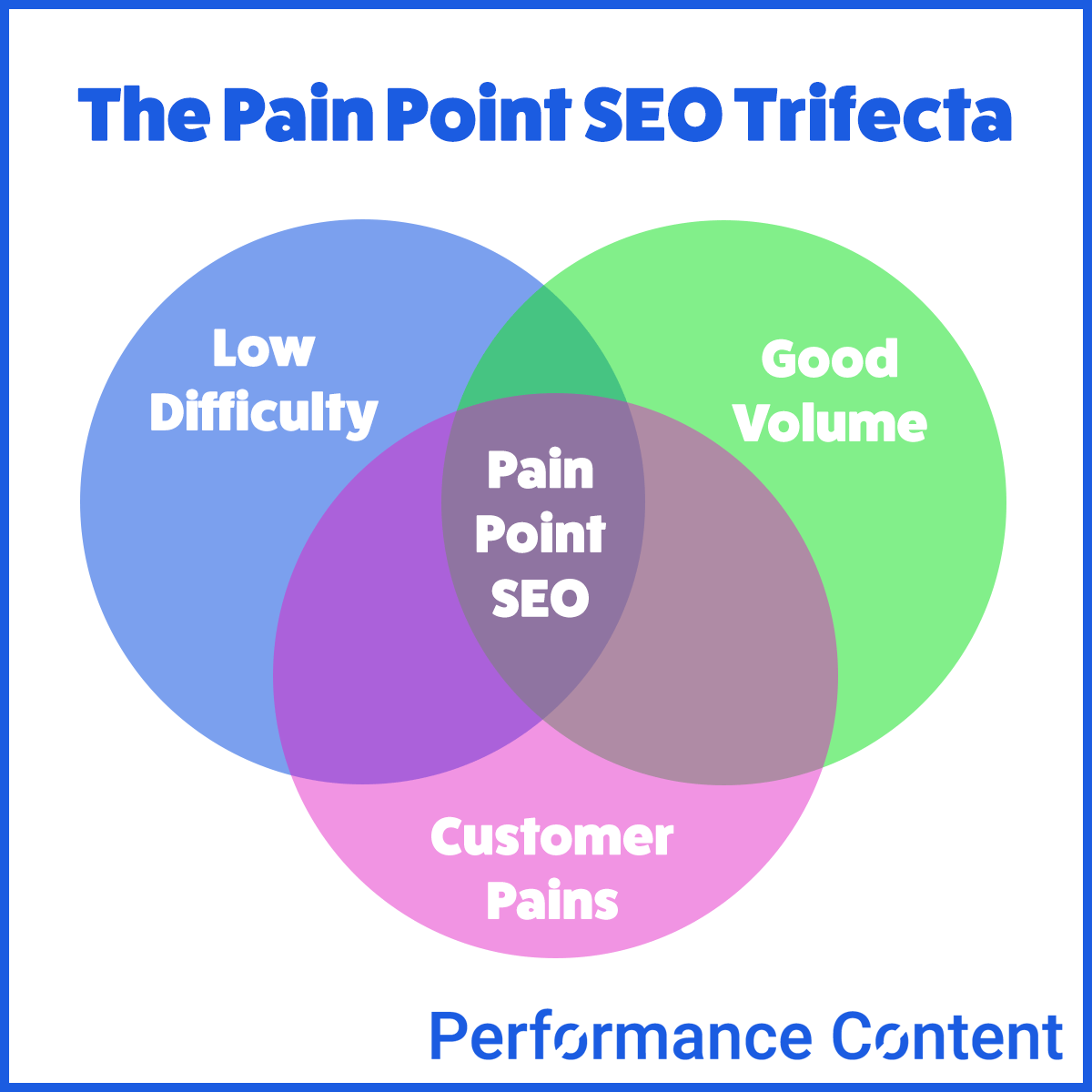
Any salesperson can explain the value of understanding customer pain points. Or, more specifically, why relieving customer pain is key to sales success. Most of us would gladly pay to make our pains go away.
Before we get to why that matters for SEO, let’s consider two truths:
1. Most companies want their SEO efforts to yield more sales…
2. … yet they target keywords that don’t drive sales conversions
Many companies want to rank for the highest-volume keywords. There’s nothing wrong with that, but those keywords are often:
- Ultra-competitive and require significant time and effort to rank
- Top of funnel and quite distant from the sale
Yes, we strive to rank for high-volume keywords. We also advocate for authority content and longtail posts. But these content strategies aren’t the fastest paths to SEO-driven sales.
Pain points are.
The idea of “pain point SEO” is to:
1. Identify low-difficulty keywords with respectable volume that represent customer pains
2. Craft content designed to rank for those keywords
3. Introduce your products and services in those posts

Though pain point keywords might not have the highest volume, they’re much lower in the funnel – and much, much closer to a sale. Thus, pain point SEO introduces well-targeted searchers to your brand when they’re feeling the pain your product can solve – in other words, right when they’re ready to buy.
Here’s an example:
Let’s say you’ve built an online collaboration tool that competes with apps like Figma, and you want to target keywords like:
| Keyword | Monthly Search Volume | Ranking Difficulty |
| Collaboration tools | 2,400 | 70 |
| Online collaboration tools | 1,300 | 74 |
| Team collaboration tools | 880 | 75 |
It would be great if your product ranked #1 for any and all of those terms, but their ranking difficulties suggest that it’s going to take considerable time and effort to get there.
Alternative keywords that address customer pain points could net quick wins – and better conversion rates – than higher-volume terms.
Consider this option:
| Keyword | Monthly Search Volume | Ranking Difficulty |
| Figma alternatives | 590 | 29 |
Though “Figma alternatives” doesn’t have quite the volume of the other keywords, it still gets searched 590 times a month – or 7,080 times a year. What’s more:
1. It addresses a pain point. The people searching for “Figma alternatives” need a collaboration tool, but they don’t want to use Figma
2. With a keyword difficulty of 29, it should be relatively fast and easy to rank
You can use insights like these to create authoritative content that compares Figma alternatives and introduces your own collaboration tool. Follow SEO best practices, and your content should rank, driving targeted visitors to discover your product. Some of them will buy.
When your SEO efforts center around customer pain points, you can do more than earn traffic. You can turn your blog into a sales machine.